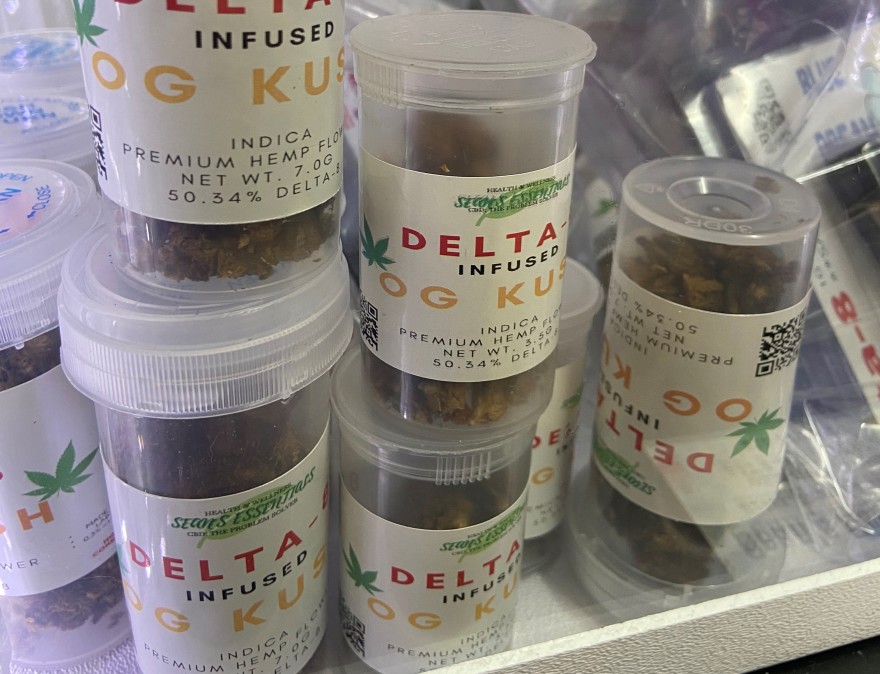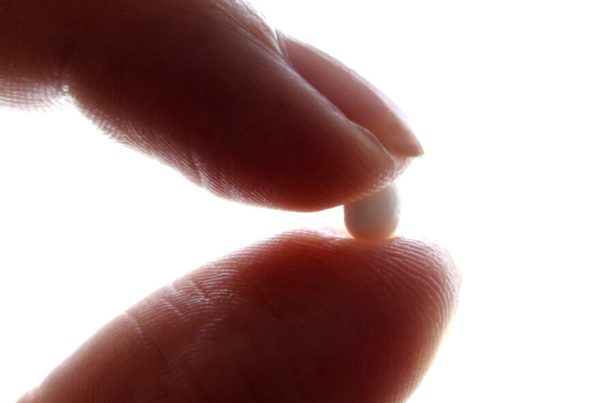A sudden change in the legal status of delta-8 THC, a cannabis extract that consumers say induces a similar effect to conventional marijuana, created a seismic shift for Texas retailers.
The Texas Department of State Health Services changed how delta-8 products are classified. Now, delta-8 is considered a Schedule 1 controlled substance – the same category as illegal drugs such as LSD and heroin.
Lisa Pittmann, a lawyer who specializes in hemp and cannabis law for the firm Zuber Lawler, spoke to the Texas Standard about how the change occurred, and its impact on buyers and sellers.
Listen to the interview above or read the transcript below to learn more about why delta-8 has been banned, and how those selling it are likely to respond.
This transcript has been edited lightly for clarity:
Texas Standard: Can you tell us about what distinguishes delta-8 and why it seems to be getting such scrutiny right now?
Lisa Pittman: It is synthesized from hemp CBD. It’s another cannabinoid. And it’s more popular in states that do not have legalized marijuana. From what I understand, it gives you an effect of a lesser body high without the paranoia that might come from the delta-9 THC that we’re familiar with- from marijuana.
Lawmakers during the last legislative session thought about legislating a ban on delta-8. That didn’t happen. Is the Department of State Health Services now reclassifying delta-8 products? Or saying that they have determined unilaterally that delta-8 is a Class 1 drug? What exactly is going on?
It has to do with the definition of tetrahydrocannabinol under the Texas Controlled Substances Act. It has been tweaked a little bit to broadly include all forms of THCs, and the definition of hemp has been tweaked to where all derivatives of the hemp plant are also legal. So there’s efforts in Texas and in other states to change that loophole because of the concern about this product having psychoactive effects or intoxicating effects.
I recall reading a story talking about how delta-8 products were just taking off. You had a lot of CBD shops selling delta-8 products, and it could make up as much as 35% or more of their retail sales. Have you heard that sort of thing?
That’s correct. It’s really sustaining a lot of businesses, since hemp CBD has kind of fallen down in its profitability. So this has been a way for farmers and retailers and wholesalers to regain their market share.
Why do you think delta-8 products have amassed such a following?
I think it’s because it gives relaxing and other therapeutic properties to people who like to get some of the benefits of a cannabinoid that makes you feel lightly high, without the paranoia and the strong head high that the traditional delta-9 THC that we’re familiar with does.
That’s not to say it is necessarily entirely safe. I’ve also read stories that delta-8 has led to emergency room visits and some people claiming that they were knocked out completely by this substance. I know doctors have been concerned about what else might be included in these substances that are advertised as delta-8 derivatives.
Exactly. It is a product fraught with risk. There’s concern about the product liability issues, about somebody getting hurt either from taking too much or from a product that might have been contaminated or adulterated. Because this is not regulated, it is hard to have any quality control on it, and because it is so popular, it is being pumped up in high volumes by manufacturers who are looking to make a quick buck. They don’t care so much what all is in the product.
Do you think that this rule is going to be challenged in court? Where do you see this headed?
I’ve heard that there will be a request for a temporary restraining order to prevent enforcement, probably based on the unusual method by which they went about publishing notice of this rule. There are questions about whether the proper administrative procedures were followed in what they did. The reason you have a notice of the rule published is so that the public can respond, and can object to it and provide input. In this case, it was published in such an unusual way that no one knew that it was happening and no one had an opportunity to challenge it. That might be what the lawsuit is based on.















